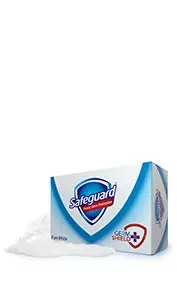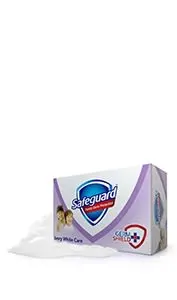- Home/
- Health Education/
- Germ & Infectious Disease/
The Itchy Truth About Eczema: Facts and Tips on Managing Discomfort
The Itchy Truth About Eczema: Facts and Tips on Managing Discomfort
SHARE
Eczema, also known as “atopic dermatitis” gives so much itchiness and irritation that can be really annoying and uncomfortable. It is a non-infectious, inflammatory skin condition that causes itchiness and discomfort, making the skin reddish, dry, and flaky. In more serious cases, the skin can also crust over and bleed.
While it can affect people of all ages, it usually affects infants between 2 to 6 months and children below 5 years old. In the Philippines, 2 to 3 out of 10 children suffer from it.
Eczema is a serious skin condition that affects not only the sufferers but also their families. Whether you or your loved ones have eczema, learn more about this skin disorder with these fast facts:
1. Causes of Eczema
The exact cause of eczema remains unknown, but the following factors have been linked to its development and aggravation.
• Family history. There is an 80% chance that a child will develop eczema if both of his parents have the same skin condition. • Foods such as dairy and wheat products, citrus fruits, eggs, nuts, seafood, preservatives and food colorings • Allergens such as animal dander, soy products, wheat, pollens, and dust mites • Irritants such as cigarette smoke, weather, soap, shampoo, detergent, and chemicals • Stress, anger, and frustration
2. Eczema symptoms
The symptoms of eczema can cause discomfort.
• Moderate to severe itchiness • Dry skin • Rash or reddish and inflamed areas of the skin such as wrists, inner elbows, back of knees, neck, and face • Inflamed skin areas become blistered and may weep watery fluid
3. Managing Discomfort from Eczema
There are a few simple ways to help manage the discomfort from Eczema.
• Avoid scratching as it can trigger inflammation which can worsen the itch. • Avoid irritants, allergens, and other triggers mentioned above. • Keep skin moisturized to keep it hydrated. This can help reduce itchiness and dryness as well as rebuild the natural barrier of the skin. • Manage stress by allotting enough time to rest, relax, and exercise. • Take short warm showers. Avoid long hot baths as they can cause dry skin.
Prevent skin infections caused by germs with a mild cleanser. Use a mild face and body wash like Safeguard Derma Sense Sensitive Face and Safeguard Body Wash. It is dermatologically tested and clinically proven to be gentle on skin as it does not have additional alcohol or dyes. With Safeguard Derma Sense Sensitive Body Wash, a person with eczema can easily wash away germs and odor without the worry of skin irritation or inflammation.
If you or your loved ones are suffering from eczema, it’s better to consult with your dermatologist to get a prescription.
References:
Ad Rescue Wear (2014, September 11). The Social Issues of Eczema – Treating the Whole Person. Retrieved from https://www.adrescuewear.com/blog/the-social-issues-of-eczema-treating-the-whole-person/
Lamberg, Erica. 9 Things You Need to Know About Eczema – Especially If You Have It. Retrieved from http://www.rd.com/health/conditions/eczema-facts/
Eczema Association Australia. Facts About Eczema. Retrieved from http://www.eczema.org.au/eczema-facts/
Ibarra, Matteo (2014 April 3). Atopic Dermatitis: A skin disorder that can affect childrens’ quality of life. Retrieved from http://www.gmanetwork.com/news/lifestyle/healthandwellness/355382/atopic-dermatitis-a-skin-disorder-that-can-affect-children-s-quality-of-life/story/
Knott, Laurence (2015 February 12). Atopic Eczema. Retrieved from https://patient.info/health/atopic-eczema




